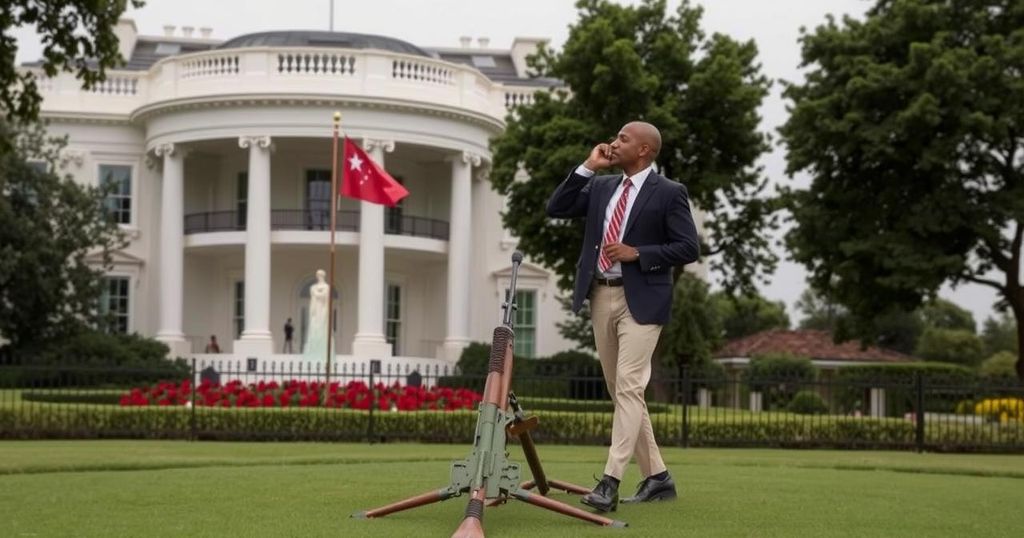Global news
” MCGURK, AFRICA, BRETT MCGURK, CHRIS VAN HOLLEN, CIVIL WAR, CONFLICT, CONGRESS, DECLAN WALSH, HOUSE OF REPRESENTATIVES, HUMANITARIAN CRISIS, MCGURK, MILITARY, NEW YORK TIMES, NORTH AMERICA, RS, SARA JACOBS, SENATE, SUDAN, UNITED STATES, US, VAN HOLLEN, WALSH, WHITE HOUSE
Fatima Khan
0 Comments
UAE Halts Arms Supply to Sudan’s RSF Following U.S. Intervention
The White House has informed U.S. senators that the UAE has stopped supplying arms to Sudan’s RSF after U.S. objections, following legislation introduced by Senator Chris Van Hollen. The UAE assured that it is not transferring weapons to the RSF and will continue to refrain from doing so, with a compliance assessment expected by January 17, 2025.
On December 19, 2024, the White House informed U.S. senators that the United Arab Emirates (UAE) has halted arms shipments to the Rapid Support Forces (RSF) in Sudan, prompted by objections from the United States. This notification follows the introduction of legislation by Senator Chris Van Hollen on November 21, which aimed to prevent U.S. arms sales to the UAE unless it was confirmed that such sales did not support the RSF. In a correspondence dated December 18, Middle East and North Africa Coordinator Brett McGurk conveyed that the UAE committed to not transferring any weapons to the RSF and that updated compliance assessments would be provided by January 17.
The allegations against the UAE regarding its support for the RSF have generated significant controversy, as both the Sudanese army and UN experts claim that the UAE has been supplying arms to this paramilitary group engaged in conflict with the Sudanese military for over 18 months. The UAE, however, has persistently denied these allegations. Declan Walsh, the Chief Africa Correspondent for The New York Times, indicated that the UAE’s latest actions may signify the first acknowledgment of prior arms supplies to the RSF, which had been categorically denied.
U.S. law mandates congressional oversight of significant arms deals, allowing senators to compel votes on resolutions of disapproval. Unfortunately, House members lack the same authority, meaning a resolution to restrict arms sales must pass through both legislative chambers and surpass any potential presidential vetoes.
This article addresses the recent decision by the United Arab Emirates to cease arms supply to Sudan’s Rapid Support Forces, occurring amid rising concerns from the United States. The background includes a legislative effort initiated by U.S. officials, notably Senator Chris Van Hollen, aimed at holding the UAE accountable for its alleged support of the RSF. The ongoing conflict in Sudan has highlighted the complexities of international arms sales, particularly concerning the ethical implications of supporting armed groups in conflict zones. Additionally, the UAE’s previous denials of such support intensify the scrutiny surrounding its military engagements in Sudan.
In summary, the UAE’s decision to stop arms supplies to Sudan’s RSF marks a significant development following U.S. legislative pressure. The assurances from the UAE regarding compliance with U.S. concerns indicate a potential shift in its foreign military policy. Nevertheless, ongoing monitoring and assessment will be crucial to ensure that these commitments are upheld as tensions continue in the region.
Original Source: sudantribune.com




Post Comment